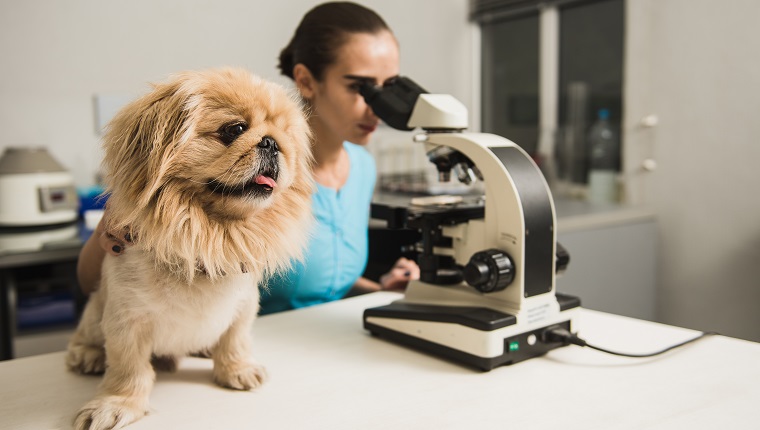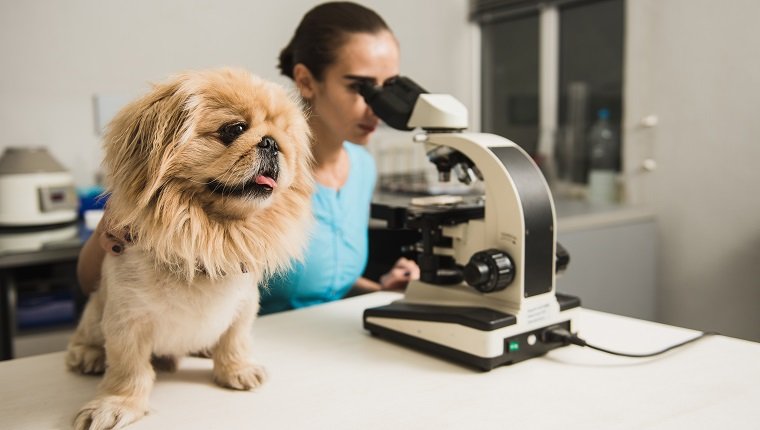DNA preservation for dog cloning is gaining popularity, but the question of whether it is the right thing to do remains. As the practice of cloning pets continues to develop, the ethical and moral implications are continuously debated.
Some argue that cloning turns animals into objects rather than sentient beings, while others highlight the physical toll it takes on surrogate animals involved in the process. Despite the controversies, pet cloning is still growing in popularity, even with its high cost.
However, it is essential to carefully consider the ethical implications before deciding to clone a pet.
Arguments Against Pet Cloning
The growing popularity of DNA preservation for dog cloning raises ethical concerns. Critics argue that cloning turns animals into objects, lacks respect for individuality, and subjects surrogate animals to invasive procedures. The debate continues on whether pet cloning is the right thing to do.
There are several compelling arguments against pet cloning that question the ethical implications and consequences of this controversial practice. Below, we explore some of the key concerns raised by critics of pet cloning.
Animals As Commodities
One of the primary concerns surrounding pet cloning is the argument that it reduces animals to mere commodities or objects. Cloning treats animals as products that can be manufactured and bought, rather than recognizing them as sentient beings with their own intrinsic value. By viewing animals as commodities, we potentially undermine their welfare and prioritize our desires over their individuality and well-being.
Lack Of Respect For Individuality
Another significant argument against pet cloning is the lack of respect for an animal’s individuality. Cloning creates duplicates of existing animals, essentially replicating their genetic makeup. This denies the uniqueness and individual characteristics that make each animal special. It ignores the natural processes of genetic recombination and variation that contribute to the diversity of life. Instead of celebrating and cherishing each animal’s distinct qualities, cloning treats them as interchangeable replicas, diminishing their value as individuals.
Moreover, the process of pet cloning necessitates the use of surrogate animals who endure surgical procedures for embryo implantation. This can lead to further ethical concerns, including the potential for stillbirths and the physical toll on the surrogate. It raises questions about whether it is fair to subject these animals to invasive procedures solely for the purpose of producing clones. Additionally, the process of cloning can result in a lower success rate, further compromising the well-being of the animals involved.
In conclusion, while pet cloning may provide an avenue for individuals to preserve their beloved pets, it is essential to consider the arguments against this practice. By recognizing the ethical concerns surrounding animals as commodities and the lack of respect for individuality, we can engage in a thoughtful and informed discussion about the ethical implications of pet cloning.

Credit: dogtime.com
Success Rate And Ethical Concerns
Dog cloning through DNA preservation is gaining popularity, but ethical concerns arise regarding the practice. While it allows pet owners to replicate their beloved companions, the ethical implications of turning animals into commodities and the surgical procedures that surrogate animals endure raise questions about the rightness of cloning pets.
The Success Rate Of Dog Cloning
When it comes to dog cloning, one of the most important factors to consider is the success rate of the procedure. Cloning technology has come a long way in recent years, but it is still far from perfect. The success rate varies depending on various factors, including the expertise of the cloning laboratory, the quality of the genetic material, and the health of the surrogate animal used.
According to a study published in the Smithsonian Magazine, the success rate of dog cloning is around 20-30%. This means that out of every 10 cloning attempts, only 2 or 3 are successful. While this may sound discouraging, it is important to remember that even a low success rate is still a possibility for those who are willing to take the risk.
One of the main reasons for the relatively low success rate is the difficulty in implanting the cloned embryos into the surrogate animal. This process requires surgical intervention and is not always successful. In some cases, the surrogate animal may also experience complications such as cesarean sections or stillbirths, further reducing the chances of a successful cloning.
Ethical Issues With Surrogate Animals
While the concept of cloning a beloved pet may seem enticing, it is important to consider the ethical implications of using surrogate animals in the process. Surrogate animals are the ones who carry and give birth to the cloned embryos, essentially acting as the “mothers” for the cloned pets.
Unfortunately, the use of surrogate animals raises several ethical concerns. Firstly, these animals have to undergo invasive surgery to have the cloned embryos implanted into their wombs. This can be a painful and stressful experience for the surrogate animals.
Moreover, there is a risk of complications during the pregnancy and birth. Surrogate animals may experience stillbirths or other pregnancy-related issues, putting their health and well-being at risk. This raises the question of whether it is fair to subject these animals to potential harm for the sake of cloning a pet.
In addition to the physical toll on surrogate animals, there are also moral concerns regarding the commodification of animals. Cloning turns animals into objects or commodities, rather than treating them as sentient beings with their own rights and autonomy. This lack of respect for the individuality of animals is often seen as a violation of ethical principles.
It is essential to weigh these ethical concerns against the desire to clone a pet. While the technology may offer the possibility of bringing back a beloved companion, it is important to consider the well-being of all parties involved, including the surrogate animals.
Growing Popularity Despite Controversy
Despite controversy, DNA preservation for dog cloning is gaining popularity as pet owners are exploring the possibility of recreating their beloved pets. However, the ethical implications of this practice continue to be debated.
The Cost Of Pet Cloning
One of the major factors that discourage pet owners from cloning their beloved dogs is the steep cost. Pet cloning can be an expensive endeavor, with prices ranging from tens of thousands to hundreds of thousands of dollars. This price tag includes various stages of the cloning process, such as DNA extraction, embryo creation, and implantation into a surrogate mother.
Additionally, there are recurring costs associated with the maintenance and care of cloned pets. From veterinary expenses to specialized diets, the financial burden of owning a cloned pet can be substantial. It’s important for pet owners to carefully consider whether they can afford these ongoing costs before making the decision to clone their dog.
Despite the high cost, some pet owners are willing to pay any price to have another chance at having their beloved companions by their side.
Reasons Why Owners Choose To Clone
For pet owners who decide to go through with pet cloning, there are various reasons that motivate their choice:
- Emotional Connection: Many pet owners form deep emotional bonds with their furry friends. Cloning offers the opportunity to have another pet with similar genetic traits and characteristics as their beloved departed pet.
- Preserving Unique Qualities: Some owners may have dogs with exceptional skills, talents, or temperament that they wish to preserve. Cloning allows them to recreate these unique qualities in a new pet.
- Genetic Health: Cloning can be seen as a way to preserve the genetic health of a specific dog lineage. By cloning healthy and genetically sound dogs, owners can ensure the continuity of desirable traits.
- Reducing Grief: The loss of a pet can be a devastating experience, and some owners find comfort in the idea of bringing back a familiar companion through cloning. It provides a sense of hope and relieves some of the grief associated with the loss.
However, it is essential for pet owners to carefully evaluate the ethical implications and potential consequences associated with pet cloning before proceeding.

Credit: dogtime.com
Preserving Dna For Cloning
Preserving DNA for cloning has gained popularity in dog cloning, but the ethical implications are being questioned. Freezing sperm or egg cells is currently the only method to preserve an animal’s genetics.
Inexpensive Methods Of Dna Preservation
Preserving DNA for cloning is becoming more popular among pet owners, but is it the right thing to do? The controversial practice of cloning dogs and cats is gaining traction, despite its high cost. However, there are less expensive methods available for DNA preservation that pet owners should consider. One of the inexpensive methods of DNA preservation is freezing. Freezing sperm cells from male dogs or egg cells from female dogs is a viable option for preserving genetic material. By freezing these cells, pet owners can ensure that their dog’s DNA is stored for future cloning purposes. The process of freezing is relatively simple and cost-effective compared to the more complex procedure of cloning. Another affordable method of DNA preservation is the use of biopsy kits for tissue preservation. These kits allow pet owners to collect small tissue samples from their dogs and store them properly for later use. Biopsy kits are easy to use and can be purchased online or at a veterinary clinic. By preserving tissue samples, pet owners can maintain the genetic material needed for future cloning endeavors without breaking the bank.Biopsy Kits For Tissue Preservation
One effective tool for preserving DNA is the use of biopsy kits specifically designed for tissue preservation. These kits typically contain everything needed to collect and store tissue samples, including sterile swabs or biopsy punches, storage containers, and preservatives. The process of using biopsy kits for tissue preservation is straightforward. Pet owners can follow these steps:- Ensure that the collection site is clean and free of any contaminants.
- Gently swab or use a biopsy punch to collect a small tissue sample from the desired area.
- Place the tissue sample in the provided storage container.
- Add the preservative solution to the container as per the kit’s instructions.
- Seal the container tightly and store it in a cool and dry place.

Credit: dogtime.com
Frequently Asked Questions Of Dna Preservation For Dog Cloning Gains Popularity, But Is It The Right Thing To Do?
Can You Preserve Dog Dna?
Yes, you can preserve dog DNA by freezing sperm cells (for entire males) or egg cells (for females).
What Are The Arguments Against Pet Cloning?
Arguments against pet cloning include ethical concerns and the commodification of animals. Cloning can be seen as disrespectful to animals as individuals and may involve invasive procedures for surrogate animals. Additionally, cloning is a costly process that may not guarantee desired outcomes.
What Is The Success Rate Of Dog Cloning?
The success rate of dog cloning varies. It is a controversial process that is gaining popularity despite its high cost.
Do You Think It Is Ethical To Clone A Pet Dog?
Cloning a pet dog is ethically controversial due to the invasive procedures and potential risks involved.
Conclusion
In the debate surrounding DNA preservation for dog cloning, ethical concerns continue to arise. While cloning technology may offer the opportunity to recreate beloved pets, it raises questions about the commodification of animals and the respect we owe to sentient beings.
As the science of cloning develops, this ethical debate will persist, challenging us to consider whether cloning is truly the right course of action for our furry companions.

